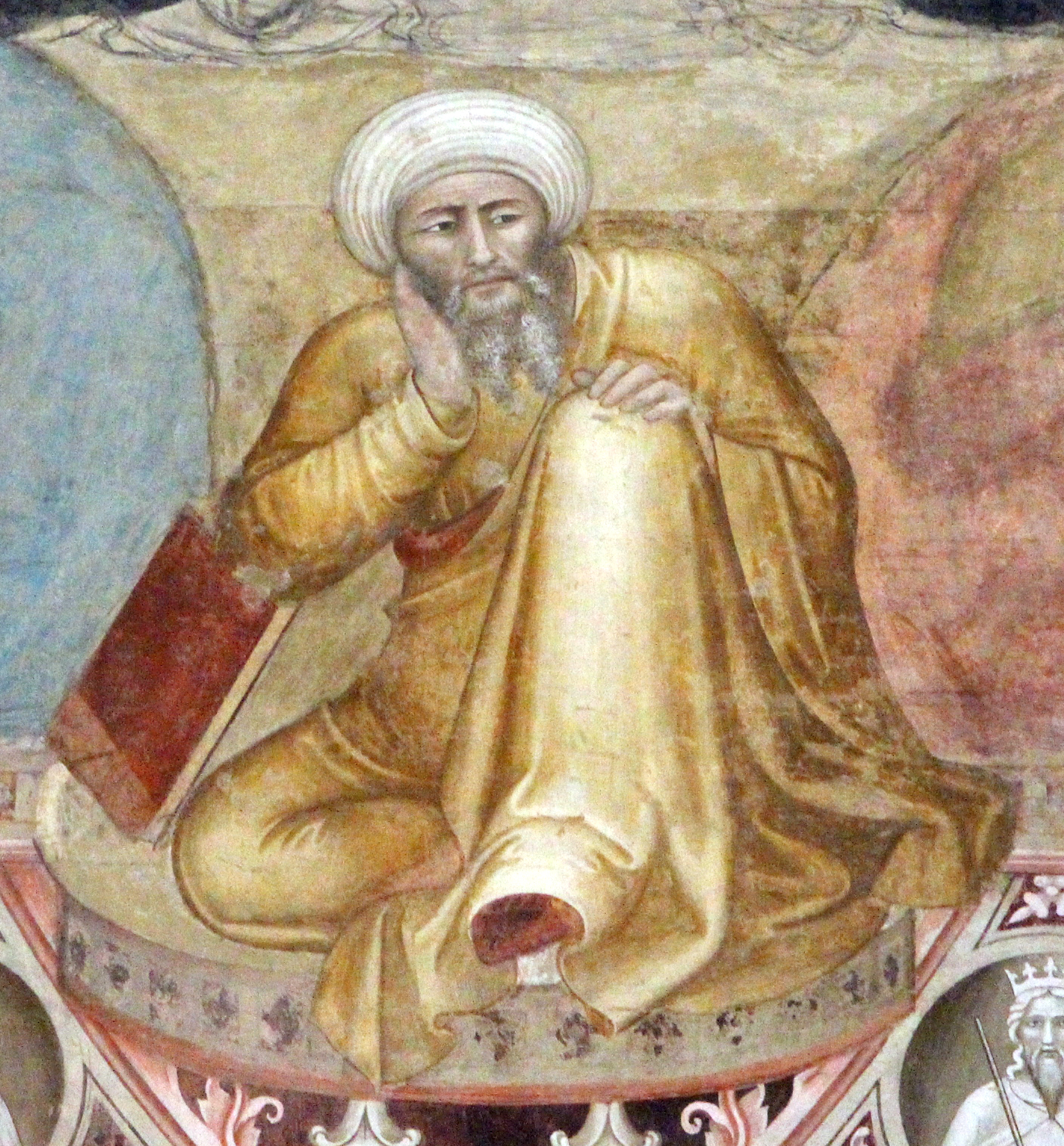Averroes
 | native_name =
| birth_date =
| birth_place = Qurṭubah, Al-Andalus, Almoravid Empire
| death_date =
| death_place = Marrakesh, Almohad Caliphate
| era = Medieval, Islamic Golden Age
| region = Islamic philosophy
| school_tradition = Aristotelianism
| main_interests = Islamic theology, philosophy, Islamic jurisprudence, medicine, astronomy, physics, linguistics
| notable_ideas = Relation between Islam and philosophy, non-contradiction of reason and revelation, unity of the intellect
| other_names =
| native_name =
| birth_date =
| birth_place = Qurṭubah, Al-Andalus, Almoravid Empire
| death_date =
| death_place = Marrakesh, Almohad Caliphate
| era = Medieval, Islamic Golden Age
| region = Islamic philosophy
| school_tradition = Aristotelianism
| main_interests = Islamic theology, philosophy, Islamic jurisprudence, medicine, astronomy, physics, linguistics
| notable_ideas = Relation between Islam and philosophy, non-contradiction of reason and revelation, unity of the intellect
| other_names = The Commentator
(The Grandson) |Relatives=Ibn Rushd al-Jadd (grandfather)}} Ibn Rushd (}}; full name in ; 14 April 112611 December 1198), often Latinized as Averroes ( ), was an Andalusian polymath and jurist who wrote about many subjects, including philosophy, theology, medicine, astronomy, physics, psychology, mathematics, Islamic jurisprudence and law, and linguistics. The author of more than 100 books and treatises, his philosophical works include numerous commentaries on Aristotle, for which he was known in the Western world as ''The Commentator'' and ''Father of Rationalism''.
Averroes was a strong proponent of Aristotelianism; he attempted to restore what he considered the original teachings of Aristotle and opposed the Neoplatonist tendencies of earlier Muslim thinkers, such as Al-Farabi and Avicenna. He also defended the pursuit of philosophy against criticism by Ashari theologians such as Al-Ghazali. Averroes argued that philosophy was permissible in Islam and even compulsory among certain elites. He also argued scriptural text should be interpreted allegorically if it appeared to contradict conclusions reached by reason and philosophy. In Islamic jurisprudence, he wrote the ''Bidāyat al-Mujtahid'' on the differences between Islamic schools of law and the principles that caused their differences. In medicine, he proposed a new theory of stroke, described the signs and symptoms of Parkinson's disease for the first time, and might have been the first to identify the retina as the part of the eye responsible for sensing light. His medical book ''Al-Kulliyat fi al-Tibb'', translated into Latin and known as the ''Colliget'', became a textbook in Europe for centuries.
His legacy in the Islamic world was modest for geographical and intellectual reasons. In the West, Averroes was known for his extensive commentaries on Aristotle, many of which were translated into Latin and Hebrew. The translations of his work reawakened western European interest in Aristotle and Greek thinkers, an area of study that had been widely abandoned after the fall of the Western Roman Empire. His thoughts generated controversies in Latin Christendom and triggered a philosophical movement called Averroism based on his writings. His unity of the intellect thesis, proposing that all humans share the same intellect, became one of the best-known and most controversial Averroist doctrines in the West. His works were condemned by the Catholic Church in 1270 and 1277. Although weakened by condemnations and sustained critique from Thomas Aquinas, Latin Averroism continued to attract followers up to the sixteenth century. Provided by Wikipedia
-
1
-
2
-
3
-
4by Averroës, 1126-1198
Published 1560Venetiis : [Cominum de Tridino], 1560.380 leaves ; 18 cm.Other Authors: “...Averroës, 1126-1198...”
-
5by Averroës, 1126-1198
Published 1560Venetiis [Venice] : Apud Cominum de Tridino Montisferrati, 1560.381 leaves : ill.Other Authors: “...Averroës, 1126-1198...”
-
6by Averroës, 1126-1198
Published 1892Halle a.S., Hofbuchdruckerei von C.A. Kaemmerer & Co., 1892.54, [1], 11, [6] p.Center for Research Libraries
Online Resource -
7by Averroës, 1126-1198
Published 1892Halle a.S., Hofbuchdruckerei von C.A. Kaemmerer & Co., 1892.54, [1], 11, [6] p. -
8by Averroës, 1126-1198
Published 1482'Venice" [i.e., Ferrara] Laurentius de Rubeis et Socii, 5 Oct. 1482.[228] p. -
9
-
10by Aristotle
Published 1482Venetiis : Philippus Petri, 1482.360 leaves.Other Authors: “...Averroës, 1126-1198...”
-
11by Aristotle
Published 1472Patavii : Laurentius Canozius, 1472.90 leaves.Other Authors: “...Averroës, 1126-1198...”
-
12by Aristotle
Published 1474[Patavii : Laurentius Canozius, ca. 1474]24 leaves.Other Authors: “...Averroës, 1126-1198...”
-
13by Aristotle
Published 1474Patavii : Laurentius Canozius, 1474.26 leaves.Other Authors: “...Averroës, 1126-1198...”
-
14by Aristotle
Published 1489Venetiis : Stagninus, 1489.5 v.Other Authors: “...Averroës, 1126-1198...”
-
15by Jean, de Jandun
Published 1552Venetiis [Venice] : Apvd Ivntas [Giunta], 1552.[9], 63 leaves.Other Authors: “...Averroës, 1126-1198...”
-
16by Aristotle
Published 1483Venezia : Torresanus et De Blauis, 1483.544 p.Other Authors: “...Averroës, 1126-1198...”
-
17by Aristotle
Published 1483Venezia, Andreas Torresanus et Bartholomaeus de Blauis, 1483.3 v. in 2. 3̊Other Authors: “...Averroës, 1126-1198...”
-
18by Worms, Moses d. 1849
Published 1900Münster : Verlag der Aschendorffschen Buchh., 1900.viii, 70 p. ; 24 cm.Other Authors: “...Averroës, 1126-1198...”
-
19by Aristotle
Published 1473Patavii : Laurentius Canozius, 1473.198 leaves.Other Authors: “...Averroës, 1126-1198...”
-
20by Ibn Zuhr, ʻAbd al-Malik ibn Abī al-ʻAlāʼ, d. 1162
Published 1531Lugduni, Jacobo Giu[n]ta, 1531.123 l.Other Authors: “...Averroës, 1126-1198...”

